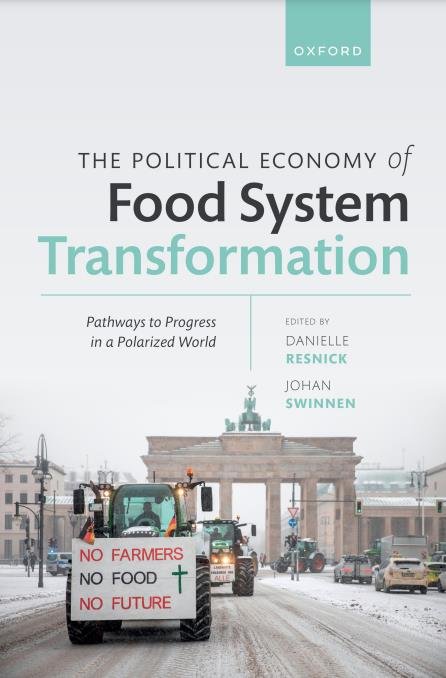- Share this article
- Subscribe to our newsletter
The Political Economy of Food System Transformation
The global food system is increasingly seen as unsustainable. And this has far-reaching consequences for the environment and public health. The new book The Political Economy of Food System Transformation: Pathways to Progress in a Polarized World, co-edited by Danielle Resnick and Johan Swinnen and published by the International Food Policy Research Institute (IFPRI) and Oxford University Press in September 2023, explores the complex dynamics around this much needed transformation.
The book sheds light on the complexity of local, national and global food systems while also emphasising the increasingly polarised political and institutional landscape in food policy. In recent years, food systems have expanded to involve a wider array of non-traditional stakeholders, such as insurance companies, banks, technology firms and transnational civil society advocates. Moreover, for many food systems are no longer just about ensuring calorie sufficiency. They are also expected to address racial and gender justice, human rights, and the preservation of biodiversity and indigenous knowledge.
As food systems evolve, so too does the political landscape. With the rise of populism, misinformation and ideological biases now compete with rigorous analysis in informing policy recommendations. National-level polarisation is mirrored geopolitically, further exacerbated by events like Russia’s invasion of Ukraine. A crisis of multilateralism hampers coordination on cross-national issues like climate change and trade, while the rise of multi-stakeholder groups in global forums like the United Nations Food Systems Summit obscures who is ultimately accountable for food system actions.
Given these intricate challenges, the question arises: How can we take meaningful action? To answer this question, the book presents the perspectives of global scholars spanning disciplines such as economics, political science, nutrition, ecology, geography and public policy. They employ a range of methodologies to analyse obstacles to reform and highlight factors that have propelled change in countries of varying income levels.
The book applies a political economy lens to a range of contentious issues, including repurposing agricultural subsidies, reducing red meat and ultra-processed food consumption, promoting responsible biotechnologies, adopting sugar-sweetened beverage taxes, implementing the European Union's Farm to Fork Strategy, adapting urban food system councils to different country contexts, and ensuring accountability for global food system commitments. The authors stress the importance of tackling these issues through incentive structures, mobilisation strategies and innovative policy frameworks that can broaden coalitions for change.
(IFPRI/ile)
Read more and download the book on the IFPRI website





Add a comment
Comments :
Best regards,
Your Rural 21 Team